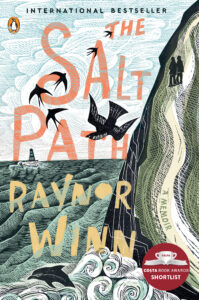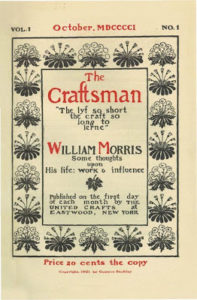By RAYNOR WINN
Excerpted from The Salt Path
We’d expected extremes of weather while we were on the Coast Path, British weather. Wind, rain, fog, occasional hail even, but not the heat, the burning, suffocating heat. By lunchtime we’d crawled out of the shade of Woody Bay into an intensely hot afternoon. We shared a cereal bar and banana, looking west across some of the highest cliffs in England. Near vertical faces rising as high as 800 feet and stretching away to the Great Hangman, at 1,043 feet, the highest point on the whole of the South West Coast Path. But between us and the Hangman was a series of savage rises and falls, which even Paddy admits are steep. From the cliff top to near sea level, from sea level to the cliff top. And repeat. This was why I’d wanted to start in Poole. Then it got hotter.














